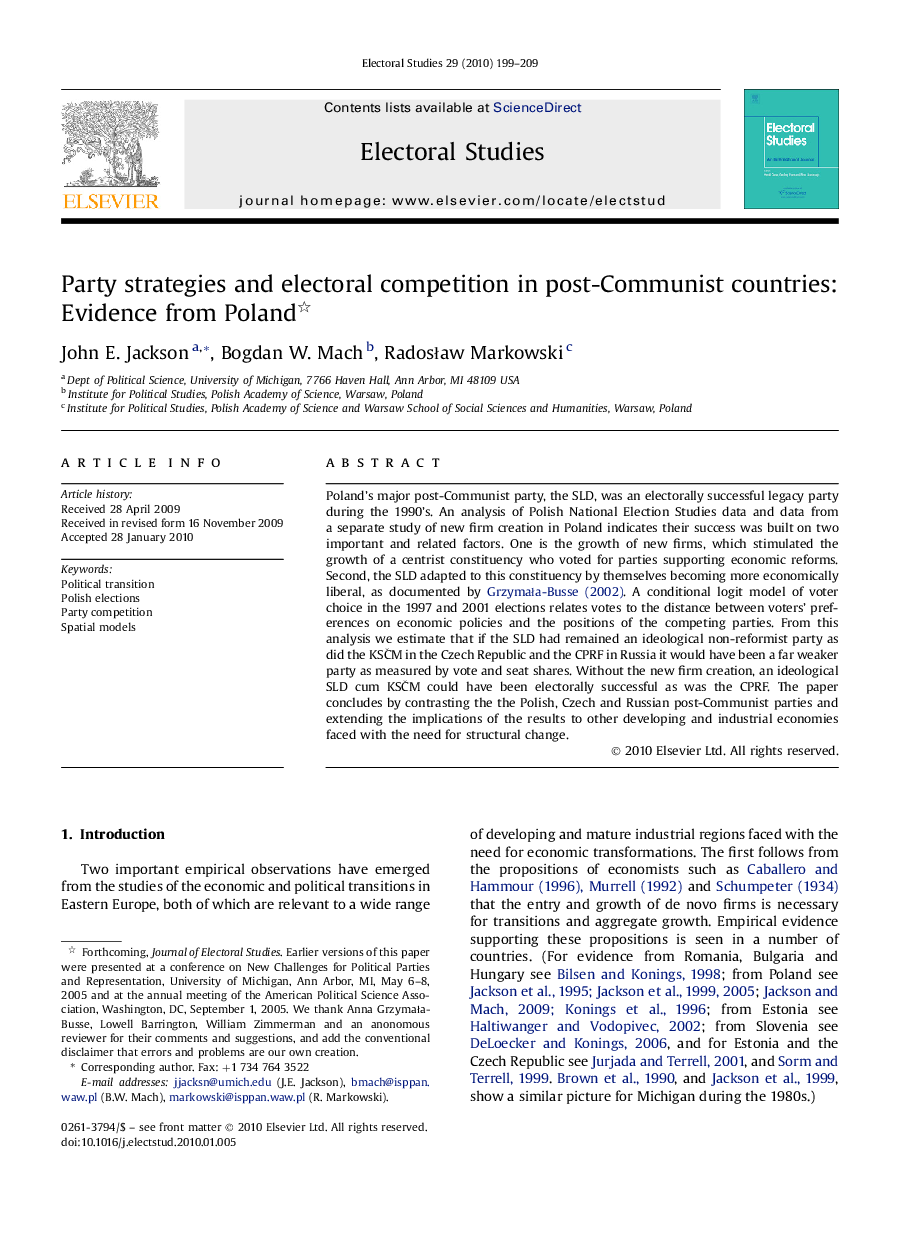| کد مقاله | کد نشریه | سال انتشار | مقاله انگلیسی | نسخه تمام متن |
|---|---|---|---|---|
| 1052060 | 946371 | 2010 | 11 صفحه PDF | دانلود رایگان |

Poland's major post-Communist party, the SLD, was an electorally successful legacy party during the 1990's. An analysis of Polish National Election Studies data and data from a separate study of new firm creation in Poland indicates their success was built on two important and related factors. One is the growth of new firms, which stimulated the growth of a centrist constituency who voted for parties supporting economic reforms. Second, the SLD adapted to this constituency by themselves becoming more economically liberal, as documented by Grzymała-Busse (2002). A conditional logit model of voter choice in the 1997 and 2001 elections relates votes to the distance between voters' preferences on economic policies and the positions of the competing parties. From this analysis we estimate that if the SLD had remained an ideological non-reformist party as did the KSČM in the Czech Republic and the CPRF in Russia it would have been a far weaker party as measured by vote and seat shares. Without the new firm creation, an ideological SLD cum KSČM could have been electorally successful as was the CPRF. The paper concludes by contrasting the the Polish, Czech and Russian post-Communist parties and extending the implications of the results to other developing and industrial economies faced with the need for structural change.
Journal: Electoral Studies - Volume 29, Issue 2, June 2010, Pages 199–209